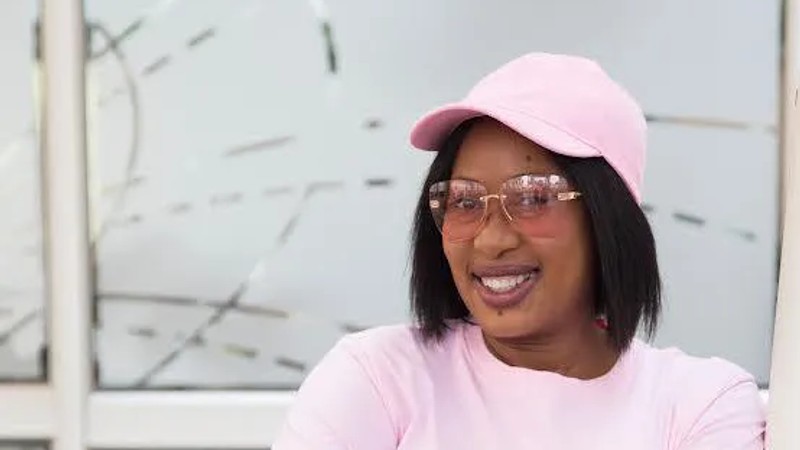Just before the COVID-19 pandemic altered life as we knew it, Ida Chibweza was a woman with plans.
As she approached her 40s, she was juggling a high-pressure career as an Executive Personal Assistant at Platinum Health Medical Scheme, nurturing a relationship, and dreaming of one day getting married and starting a family.
However, her aspirations took a dramatic turn when she was confronted with a diagnosis that would change her life, breast cancer.
“Cancer was the furthest thing from my mind,” says Ida, recalling the day she first discovered a lump in her right breast.
She had participated in a free mammogram offered by Pink Drive, a mobile healthcare initiative, only to receive a negative result.
“Even though the results were negative, I felt uneasy. Over the next year, I read countless articles about the signs of breast cancer and started noticing symptoms like dimpling and scaling of the skin.”
Ida’s concerns escalated, prompting her to visit a breast density clinic in Midrand, where, following an ultrasound, the doctor expressed concerns about the lump’s shape and recommended a biopsy.
However, the cost posed a significant barrier. Lacking medical aid or savings, she opted for a biopsy at Tembisa hospital, where supportive staff guided her through the daunting process. Unfortunately, after a tense two-week waiting period, the results were inconclusive, necessitating an excision biopsy and another two-week wait.
“Finally, I received the verdict: cancer,” Ida shares, her voice heavy with emotion as she remembers the moment her life shifted.
“I just broke down and cried. The minute they tell you that you’ve got cancer—the C-word—you start seeing yourself dying. It feels as if your entire life crumbles before you.”
Alone and facing a grim new reality, with family abroad, she was left to muster the strength to navigate her way through the uncertainty.
A long road of treatment
Ida’s treatment commenced at the breast clinic at Charlotte Maxeke Johannesburg Academic Hospital, where she learned about her options.
“My treatment plan dictated that I begin with a total mastectomy, followed by 12 rounds of chemotherapy, 35 sessions of radiation, and hormone therapy for the next 10 years.”
Her initial treatment took place in state hospitals; however, a change in her employment led to her medical scheme membership proving invaluable.
“Over three arduous years, I endured extensive and costly treatments, totaling 13 surgeries, including the mastectomy.
“Reconstruction surgery was not typically offered by state hospitals, but my medical aid covered those costs, helping to restore my sense of womanhood.”
Ida explains the emotional toll of dealing with physical changes post-surgery.
“I was walking around with a flat chest on the right and a deformed breast on the left. When I began exploring the possibility of dating again, I dreaded explaining my situation.”
She adds with determination, “The reconstruction helped me regain my confidence and self-esteem.”
Resilience and hope
Belonging to a medical scheme afforded her not just financial support but also peace of mind regarding her health checks.
“Until December last year, I visited my oncologist every three months; now it’s every six months, with costs covered.”
Finding the inner strength to endure the ordeal was paramount for Ida.
“I had to stay positive. Even though my dreams of starting a family were dashed due to my hysterectomy, I focused on what was in my control. It was easy to succumb to hopelessness, but I chose to keep pushing.”
Ida candidly discusses her journey through depression, highlighting the importance of seeking help.
“Being honest with my oncologist about how I felt was crucial. They helped me navigate my emotions, erasing the stigma surrounding mental health.”
Through her journey, Ida discovered a reservoir of strength she never knew she possessed.
“I used to let small things frighten me, but cancer transformed my perspective. I kept myself engaged — shopping, working harder, reading, and even running, which helped me de-stress.”
By prioritising self-care and finding joy in little things, Ida learned to tip the scales in her favour mentally and emotionally.
“Cancer doesn’t discriminate; anyone can be affected, regardless of family history. Women must educate themselves about the signs of breast cancer and strive to secure medical aid for timely treatment.”
